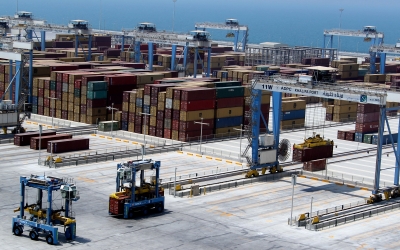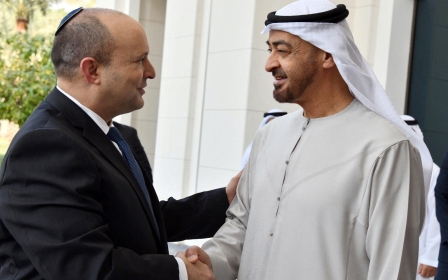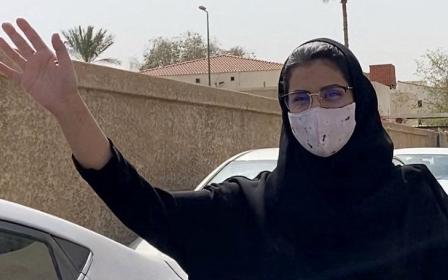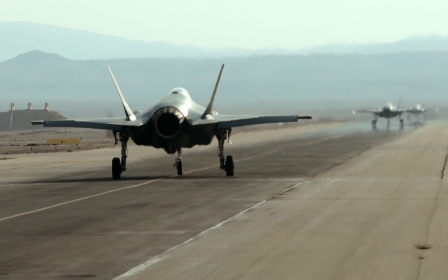UAE's China ties cast doubt on purchase of US F-35 fighter jets
The Biden administration said on Tuesday it wants a "clear, mutual understanding" of the United Arab Emirates's obligations before it finalises a $23bn sale of US-made F-35 fighter jets, Reaper drones and other advanced munitions, following a report that Abu Dhabi was threatening to pull out from the deal.
"The Biden-Harris Administration remains committed to the proposed sales of F-35 aircraft, the MQ-9B, and munitions even as we continue consultations to ensure that we have a clear, mutual understanding of Emirati obligations and actions before, during, and after delivery," a State Department spokesperson told Middle East Eye.
In a statement to Reuters, a UAE official said it would be suspending discussions to acquire the F-35 fighter jets.
"Technical requirements, sovereign operational restrictions, and cost/benefit analysis led to the re-assessment," the UAE official said.
The official, however, added that the US "remains the UAE's preferred provider" for its defence needs and that "discussions for the F-35 may be re-opened in the future".
New MEE newsletter: Jerusalem Dispatch
Sign up to get the latest insights and analysis on Israel-Palestine, alongside Turkey Unpacked and other MEE newsletters
Earlier on Tuesday, the Wall Street Journal reported, citing US officials, that the UAE is threatening to pull out of the deal, saying in a letter that it thought the security requirements the US had laid out to safeguard the high-tech weaponry from Chinese espionage were too onerous.
While some US officials told the Journal the letter - written by a relatively junior Emirati official - was a negotiating tactic heading into a visit by a high-level UAE military delegation to the Pentagon, other officials said there was a scramble to salvage the weapons sale to the Emirates, a close Gulf ally.
"This sort of back-and-forth is not unusual for significant arms sales and we are hopeful we can work through these issues and we think the joint military dialogue will give us an opportunity to do so," an official told the Journal.
The State Department spokesperson told MEE that Washington is "hopeful that we can work through any outstanding issues, and we look forward to the US-UAE Joint Military Dialogue later this week".
On 20 January, former President Donald Trump's last day in office, Washington and Abu Dhabi signed a $23bn deal for 50 F-35 jets and up to 18 armed drones and other weapons technologies from a number of major US defence contractors. According to the deal, the jets are set to be delivered by 2027.
President Joe Biden issued a review of the sale once in office and announced its advancement in mid-April.
Concerns over China
While the US is the largest arms supplier to the Middle East, with exports increasing by 28 percent between 2016 and 2020, China's economic influence has grown in the region largely due to investments and construction projects via its Belt and Road Initiative.
China has also billed itself as a partner for nearly every country in the region, pursuing infrastructure projects in Egypt and Saudi Arabia, and developing strong ties with Iran.
The US has grown increasingly concerned over China's influence in the Gulf region, and particularly inside the UAE.
Biden had himself expressed this concern during talks in May and August with Abu Dhabi Crown Prince Mohammed bin Zayed (MBZ), according to a previous report by the Journal.
Biden told the crown prince that the US feared China's activity could have a detrimental impact on their partnership, to which MBZ replied he had heard the US president "loud and clear".
Last week, the Emirates halted construction work at a Chinese port project near Abu Dhabi after US officials argued that Beijing intended to use the site for military purposes.
Middle East Eye delivers independent and unrivalled coverage and analysis of the Middle East, North Africa and beyond. To learn more about republishing this content and the associated fees, please fill out this form. More about MEE can be found here.





